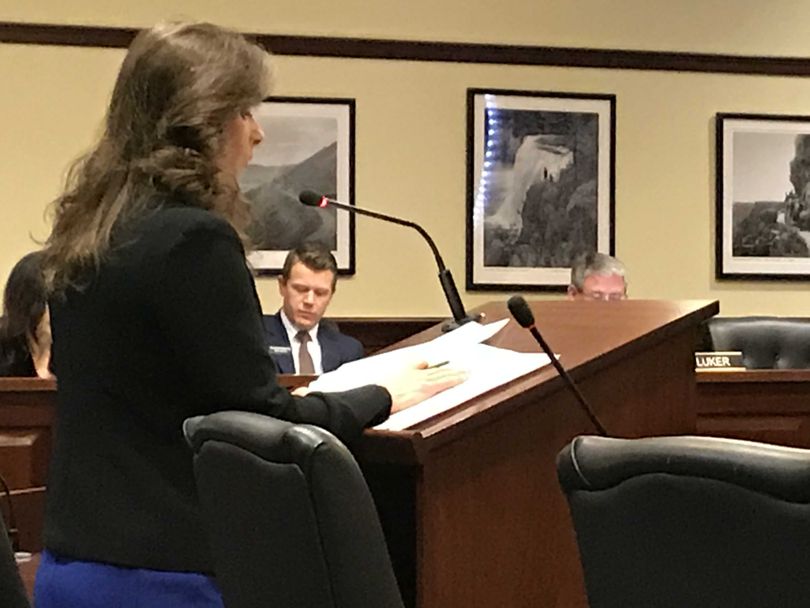Rep. Scott’s bill to limit bond, levy elections clears House panel on 13-1 vote

Rep. Heather Scott’s bill to ban repeats of bond or levy elections, even with changes, for a year after voters reject them has cleared the House State Affairs Committee on a 13-1 vote and headed to the House’s amending order; you can read my full story here at spokesman.com. Rep. Lynn Luker, R-Boise, said he believes it needs a change to an 11-month limit rather than 12 months, plus another technical correction. Representatives of the state’s associations of school boards, school superintendents, cities and libraries all spoke against the bill, saying it would limit voters’ choices. Three individual citizens and an Idaho Freedom Foundation lobbyist spoke in favor of it, including a former board member of a Kuna taxing district who said he faced a recall election after he opposed a repeat of a tax levy vote. “This is an example of how taxing districts ignore the will of the voters,” Michael Law told the committee.
Scott, R-Blanchard, said she wants to target “aggressive taxing districts” that repeatedly go back to voters until their proposals pass. “What if your political opponent could challenge you every three months?” she asked the representatives on the panel. “It’s just something to think about.”
Jerry Mason, a Coeur d’Alene attorney who represents the Association of Idaho Cities, said the association’s board voted unanimously to oppose the bill, HB 487. “Idaho has a very citizen-involved system of funding local governments,” Mason said. “Voters are asked to make decisions on a variety of questions. If the system is as it is, requiring voter participation, the option of elections should be readily available for citizens to express their opinions.”
“Requiring voter approval and then denying the opportunity for an election is just counter-productive,” Mason said. He noted that bond issues require a 66-2/3 percent supermajority, and retries typically occur when strong majorities support the move, but the margin falls slightly below the supermajority. “I would encourage you to trust local voters and local officials,” Mason told the committee. “They’re closest to the matters to be decided, and they’re using the procedures prescribed by this legislature.”
Scott told the committee, “I think we need to respect the voice of the voters, and we need to realize that we as government are using taxpayer dollars to put (measures) … on the ballots over and over again.” The bill, she said, “will prevent these aggressive taxing districts from repeatedly running their bonds or levies just to see if it’ll pass. … They will be more careful. … They would be likely to only ask what is needed, instead of what they want.”
Rep. Elaine Smith, D-Pocatello, said, “Well, I’m looking at this, and it takes two-thirds to pass a bond. … It means a third of the people can stop it, which is a minority. And I understand what a minority is, because right now I’m one vs. 13 on this committee. So I know what a minority means.”
With the resignation of Rep. Paulette Jordan, D-Plummer, to run for governor, Smith is now the only Democrat on the House State Affairs Committee. She also cast the only “no” vote against moving the bill to the full House’s amending order.
Mary Dewalt, director of Ada Community Libraries, told the committee, “This bill constitutes an unnecessary imposition by the state on what is essentially a local issue – a local tax district election.” She said, “Having the chance to vote frequently is actually a privilege and a right. It’s unfortunate that some people see it as a burden that wears you out, because it really should be seen as an opportunity to engage.”
Phil Haunschild of the Idaho Freedom Foundation told the committee, “Just because these bonds or levy elections are sometimes close, that doesn’t mean that we should allow them to come back again.” He said presidential elections can be close, but there’s not a re-vote for four years.
